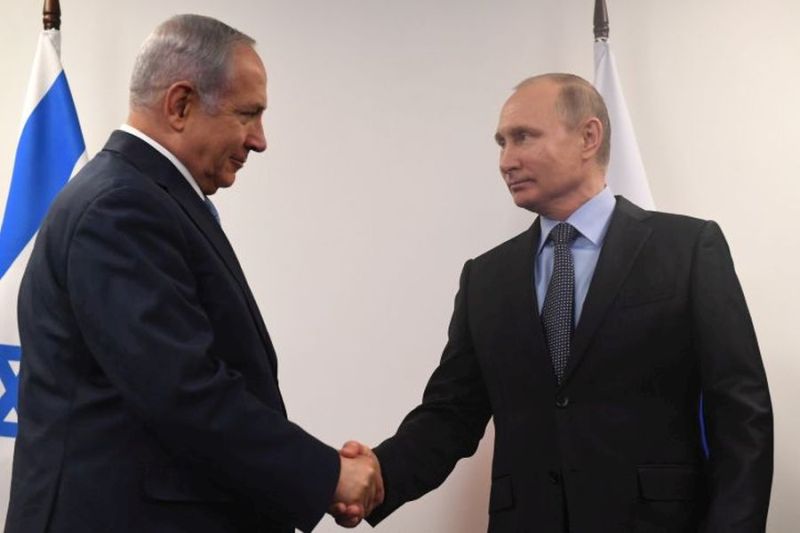Netanyahu Forewarns Putin: Israel-Hizballah War Growing Unavoidable
Hardly a day went by in the last fortnight without a dire warning from some Israeli minister or official that a military confrontation between Israel and Hizballah can no longer be averted. According to DEBKA Weekly’s military sources, they are all extremely uptight about the massive Iranian-Hizballah project underway for the construction of four precision ballistic missile factories in Syria and Lebanon. This project is proving unstoppable. Assembly lines are churning out thousands of Iranian missiles armed with precise guidance systems for Hizballah’s growing arsenal. Israeli air strikes in the past year managed to destroy some of the incoming components and equipment when they were flown into Syria – but not the plants, all of which have been sunk underground.
Israel’s clandestine activity against Hizballah targets in Lebanon took a knock, on Jan. 14, when Mohammad Hamdan, newly appointed commander of Hizballah’s secret cells along the Israeli border, survived an assassination attempt. He was wounded in the legs by a bomb that exploded when he opened the door of his car. The assassins got away, but Hizballah, aided by Iranian intelligence, ran an accomplice to the ground in Istanbul and the Turks turned him in.
Prime Minister Binyamin Netanyahu held an exhaustive conversation with President Vladimir Putin in Moscow on Monday, Jan. 29. He came with a warning that Israel could no longer hang around until the US and Russia reached an accord on Syria for loosening Iran’s military grip there. Matters had reached a juncture that left Israel with few options other than going to war on Hizballah in Lebanon, because no one else was acting to curtail its rapid rearmament and Tehran’s schemes, Netanyahu stressed. He pointed out Israel may also find it necessary to go after Hizballah units deployed in Syria, notwithstanding the Russian military presence there.
Putin briskly followed up his conversation with the Israeli prime minister with a decision on Tuesday, Jan. 30, to send a high-powered Russian delegation to Jerusalem. According to our sources in Moscow, it was to be led by Nikolai Patrushev, head of the Russian Federation Security Council, and made up of deputy ministers of foreign affairs, justice and homeland security and a couple of army and intelligence generals.
Their mission is to make a detailed study of Israel’s concerns regarding Iranian and Hizballah schemes for Syria.
Next week may hold further friction around the US-Israeli joint annual military exercise, Juniper Cobra. This year, it will simulate a massive, simultaneous rocket and missile attack against Israel on two fronts, its northern and southern borders. The US has deployed anti-missile defense systems across all parts of Israel, on the presumption that Hizballah plans to aim its missiles at Israel’s population centers and strategic infrastructure, so as to inflict as many casualties as possible, along with widespread disruption and damage. It is estimated that Iran, Hizballah and Syria are capable of simultaneously firing a volley of 9,000 missiles. They are aware of Israel’s extreme vulnerability to civilian casualties, since its population centers are inadequately shielded. At least two million Israelis, around quarter of the population, have no protection for missile attack. Our military sources add that there is no international party in sight with sufficient clout and sway to call a halt on this slippage towards a war confrontation. The Russian president’s influence in Tehran is at a low point. On Wednesday, Jan. 31, Iran flatly rejected yet another Russian proposal, this one to establish three security, no-fly zones in Syria.


